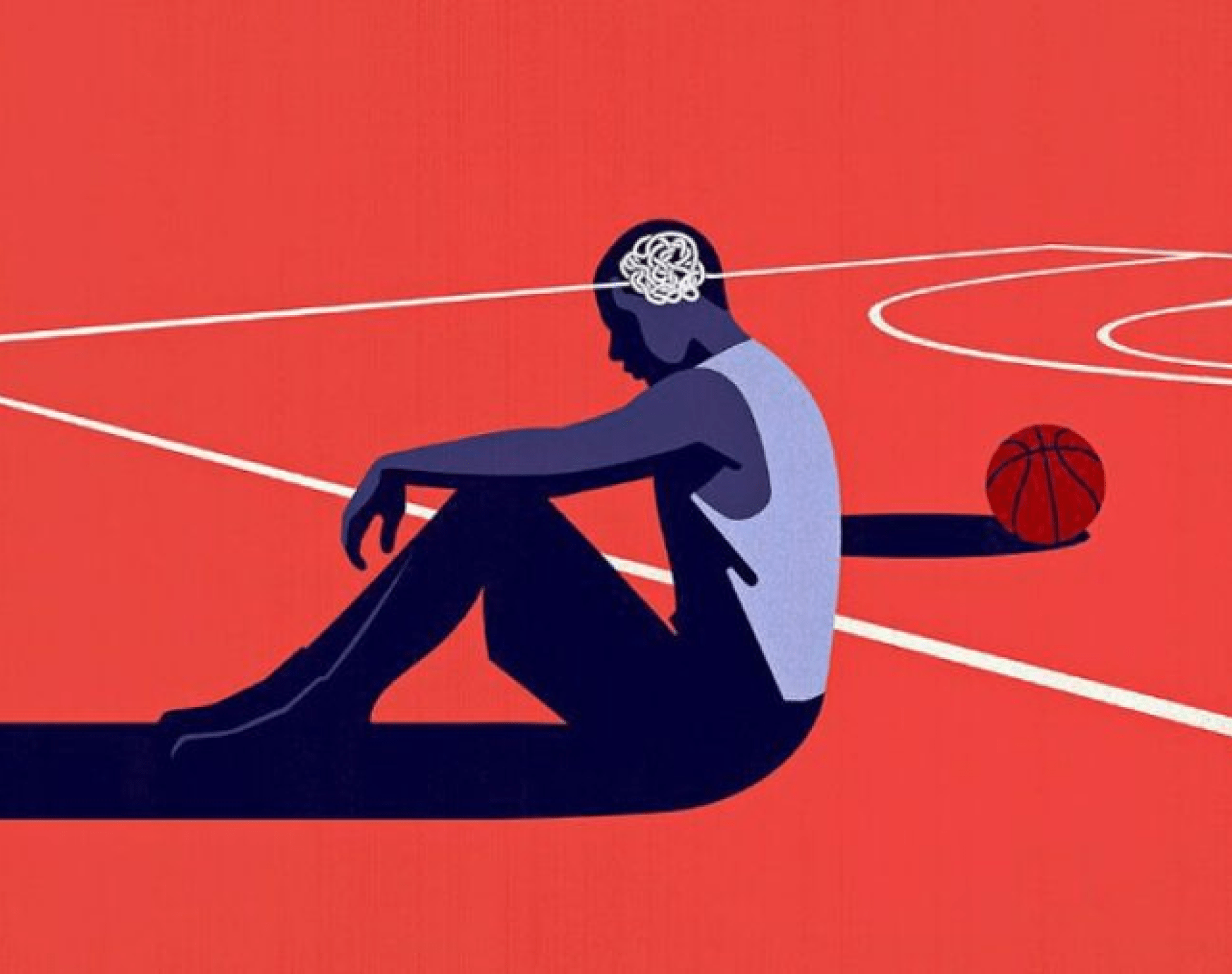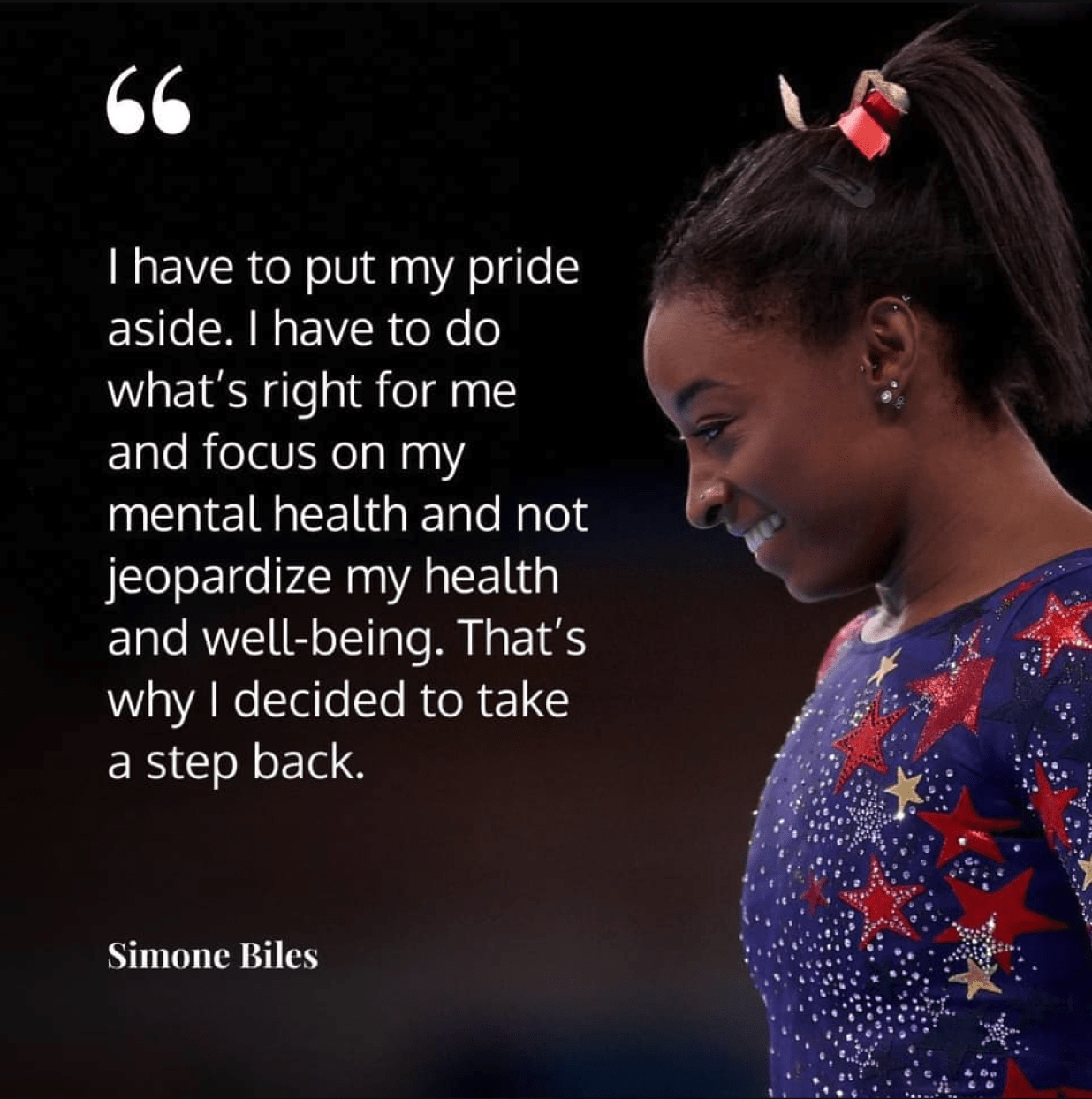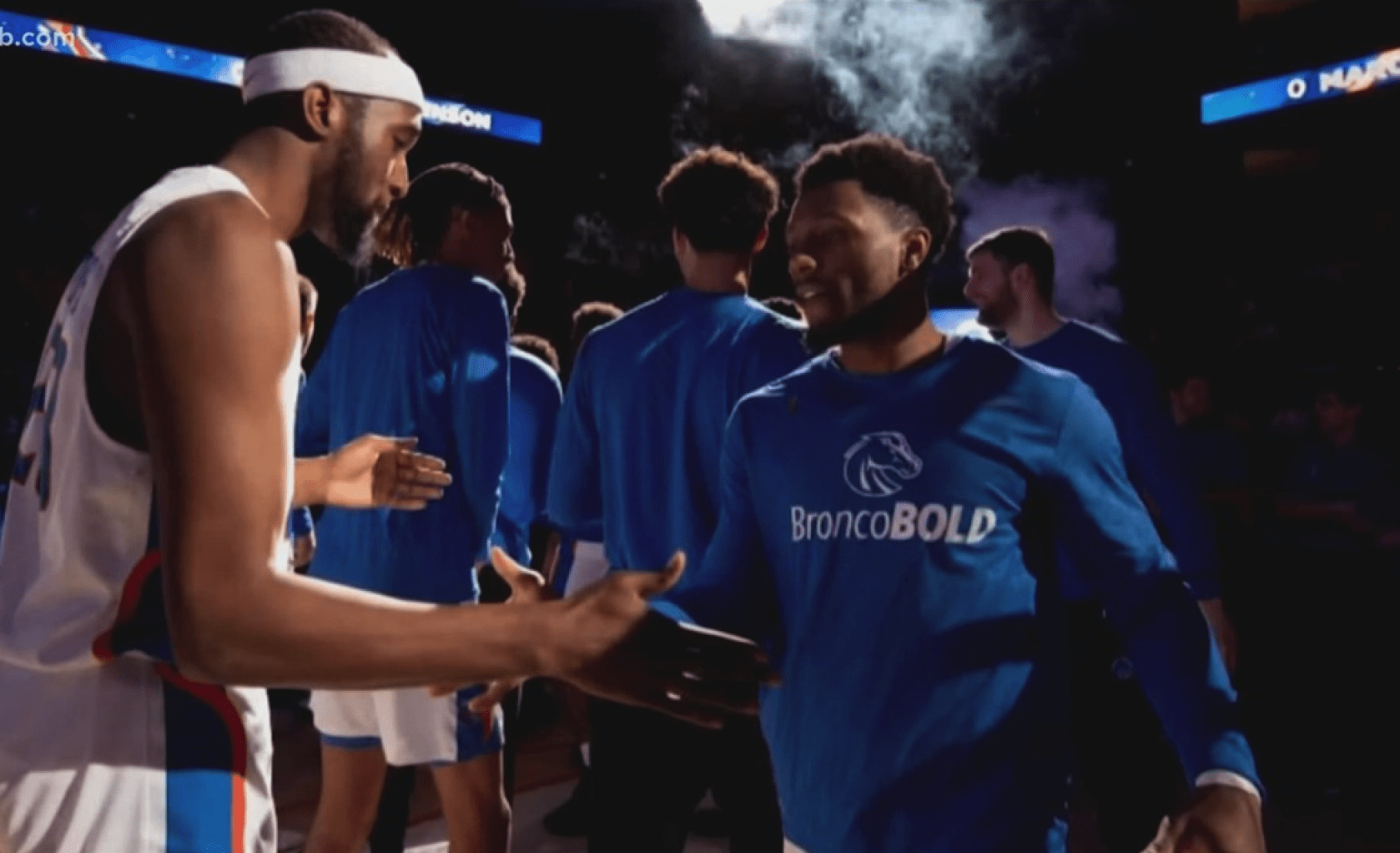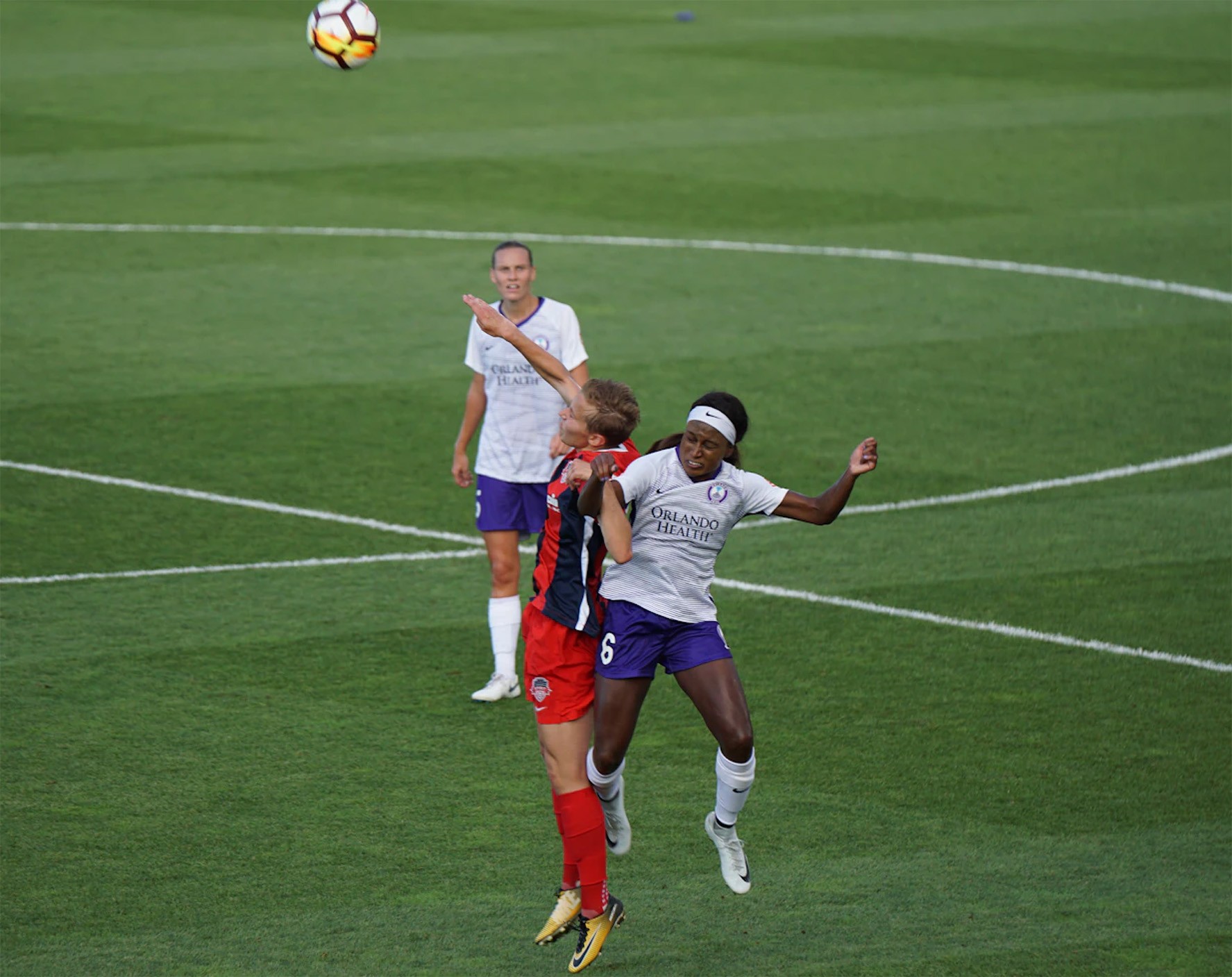
Shifting Focus & The Evolving Narrative of Mental Health in Sports
Over the last ten years, we’ve seen the narrative around mental health expand globally and across different sports, leagues, and teams. In recent years, we’ve seen these conversations turn into measured steps to help young and professional athletes alike develop the mental strength and agility needed to perform under pressure without compromising their well-being. Athletes like Simone Biles and Naomi Osaka have dramatically shifted the conversation around mental health in sports in recent years. However, they are not the first to speak out. Early pioneers in this movement include NBA player Kevin Love, who opened up about his struggles with anxiety and panic attacks in 2018, and Olympic swimmer Michael Phelps, who has been candid about his battles with depression and suicidal thoughts since 2017. Their courageous disclosures paved the way for a broader acceptance and understanding of mental health issues in sports.
Recent research has illuminated the profound benefits of sports on mental health, particularly for young athletes. Regular participation in sports and physical activities is associated with numerous psychological benefits, including enhanced mood, improved self-esteem, and increased life satisfaction. Studies have shown that engaging in team sports, in particular, fosters a sense of belonging and social support, which are crucial for mental well-being. For adolescents, sports can act as a protective factor against depression and anxiety, helping to build resilience and coping skills that are vital during these formative years.
Initiatives and Support Systems
The sports industry has responded to these findings by implementing a range of initiatives aimed at supporting mental health. One notable example is the “Ahead of the Game” program, developed by the University of Wollongong and funded by Movember. This program, which was an official part of the Rugby League World Cup 2021, educates young athletes, coaches, and parents about mental health and resilience, providing strategies to recognize and address mental health issues early on. The program’s success in Australia has led to its expansion into other countries, including the United Kingdom and Canada, highlighting its global impact on mental health awareness in sports.
Athletes for Hope (AFH) is another organization making significant strides in this area. AFH’s Mental Health program works to break the stigma surrounding mental health issues and provides athletes with the resources they need to manage their mental health. This initiative includes educational workshops, access to mental health professionals, and a supportive community for athletes to share their experiences and challenges.
Programs like BroncoBold, launched this year, at Boise State University are specifically designed to address the mental health needs of student-athletes. This initiative provides mental health resources and support systems, ensuring that athletes have access to the help they need to navigate the pressures of collegiate sports.

Opportunities for Startups and Leaders in the Sports Industry
The growing focus on mental health within the sports industry presents numerous opportunities for startups, sports organizations, executives, teams, and leagues. By addressing mental health challenges and promoting well-being, these entities can enhance athlete performance, improve overall team dynamics, and foster a more supportive environment. Here are several key opportunities:
1. Innovative Mental Health Technologies
- AI and VR Solutions: Startups can develop AI-driven tools and VR platforms to offer real-time mental health support and training for athletes. These technologies can provide personalized interventions, stress management techniques, and immersive therapy environments.
- Apps and Wearables: Companies can create apps and wearable devices that monitor mental health indicators and provide actionable insights. These tools can help athletes track their mood, stress levels, and overall mental well-being.
2. Comprehensive Mental Health Programs
- Educational Workshops and Seminars: Organizations can implement programs that educate athletes, coaches, and staff about mental health. This includes recognizing symptoms, understanding the importance of mental well-being, and knowing when and where to seek help.
- Therapeutic Services: Providing access to licensed therapists and counselors who specialize in sports psychology can help athletes manage stress, anxiety, and depression.
3. Support Networks and Peer Programs
- Mentorship and Peer Support: Establishing mentorship programs where experienced athletes support younger or less experienced peers can create a strong support network. Peer support groups can also facilitate open discussions about mental health challenges.
- Family Involvement: Programs that involve family members in the mental health support process can enhance the support system for athletes, providing additional emotional and social backing.
4. Community and Youth Engagement
- Youth Programs: Developing initiatives that focus on young athletes can build resilience and coping skills from an early age. Programs like “Ahead of the Game,” which educate young athletes and their support systems about mental health, are essential.
- Community Outreach: Engaging with local communities to promote mental health awareness and provide resources can strengthen the overall support network for athletes at all levels.
5. Corporate Partnerships and Sponsorships
- Collaborations with Brands: Partnering with companies that have a vested interest in health and wellness can provide additional funding and resources for mental health programs.
- Sponsorship of Mental Health Initiatives: Sports executives and teams can attract sponsors who are committed to supporting mental health, thereby enhancing their programs and outreach efforts.

The sports industry is at a pivotal moment where mental health is becoming a priority. Startups and leaders who innovate and implement comprehensive mental health strategies can significantly impact the well-being of athletes and the overall success of their organizations. By embracing these opportunities, the sports industry can create a healthier, more supportive environment for athletes at all levels.
By continuing to champion mental health, we can foster a healthier, more supportive environment for athletes at all levels. As we look to the future, the challenge remains: How can we build on this momentum and create a culture in sports where mental health is given the attention it deserves? The answer lies in continued collaboration, innovation, and a steadfast commitment to supporting the mental well-being of athletes. By embracing these principles, we can ensure that the sports industry not only produces champions but also nurtures well-rounded, mentally healthy individuals.

Danny Cortenraede is a global serial entrepreneur and investor. He is the founder of InStudio Ventures, based in Los Angeles, CA.
Recent Insights
Shifting Focus & The Evolving Narrative of Mental Health in Sports
Over the last ten years, we’ve seen the narrative around mental health expand globally and across different sports, leagues, and teams. In recent years, we’ve seen these conversations turn into measured steps to help young and professional athletes alike develop the mental strength and agility needed to perform under pressure without compromising their well-being. Athletes like Simone Biles and Naomi Osaka have dramatically shifted the conversation around mental health in sports in recent years. However, they are not the first to speak out. Early pioneers in this movement include NBA player Kevin Love, who opened up about his struggles with anxiety and panic attacks in 2018, and Olympic swimmer Michael Phelps, who has been candid about his battles with depression and suicidal thoughts since 2017. Their courageous disclosures paved the way for a broader acceptance and understanding of mental health issues in sports.
Recent research has illuminated the profound benefits of sports on mental health, particularly for young athletes. Regular participation in sports and physical activities is associated with numerous psychological benefits, including enhanced mood, improved self-esteem, and increased life satisfaction. Studies have shown that engaging in team sports, in particular, fosters a sense of belonging and social support, which are crucial for mental well-being. For adolescents, sports can act as a protective factor against depression and anxiety, helping to build resilience and coping skills that are vital during these formative years.
Initiatives and Support Systems
The sports industry has responded to these findings by implementing a range of initiatives aimed at supporting mental health. One notable example is the “Ahead of the Game” program, developed by the University of Wollongong and funded by Movember. This program, which was an official part of the Rugby League World Cup 2021, educates young athletes, coaches, and parents about mental health and resilience, providing strategies to recognize and address mental health issues early on. The program’s success in Australia has led to its expansion into other countries, including the United Kingdom and Canada, highlighting its global impact on mental health awareness in sports.
Athletes for Hope (AFH) is another organization making significant strides in this area. AFH’s Mental Health program works to break the stigma surrounding mental health issues and provides athletes with the resources they need to manage their mental health. This initiative includes educational workshops, access to mental health professionals, and a supportive community for athletes to share their experiences and challenges.
Programs like BroncoBold, launched this year, at Boise State University are specifically designed to address the mental health needs of student-athletes. This initiative provides mental health resources and support systems, ensuring that athletes have access to the help they need to navigate the pressures of collegiate sports.

Opportunities for Startups and Leaders in the Sports Industry
The growing focus on mental health within the sports industry presents numerous opportunities for startups, sports organizations, executives, teams, and leagues. By addressing mental health challenges and promoting well-being, these entities can enhance athlete performance, improve overall team dynamics, and foster a more supportive environment. Here are several key opportunities:
1. Innovative Mental Health Technologies
- AI and VR Solutions: Startups can develop AI-driven tools and VR platforms to offer real-time mental health support and training for athletes. These technologies can provide personalized interventions, stress management techniques, and immersive therapy environments.
- Apps and Wearables: Companies can create apps and wearable devices that monitor mental health indicators and provide actionable insights. These tools can help athletes track their mood, stress levels, and overall mental well-being.
2. Comprehensive Mental Health Programs
- Educational Workshops and Seminars: Organizations can implement programs that educate athletes, coaches, and staff about mental health. This includes recognizing symptoms, understanding the importance of mental well-being, and knowing when and where to seek help.
- Therapeutic Services: Providing access to licensed therapists and counselors who specialize in sports psychology can help athletes manage stress, anxiety, and depression.
3. Support Networks and Peer Programs
- Mentorship and Peer Support: Establishing mentorship programs where experienced athletes support younger or less experienced peers can create a strong support network. Peer support groups can also facilitate open discussions about mental health challenges.
- Family Involvement: Programs that involve family members in the mental health support process can enhance the support system for athletes, providing additional emotional and social backing.
4. Community and Youth Engagement
- Youth Programs: Developing initiatives that focus on young athletes can build resilience and coping skills from an early age. Programs like “Ahead of the Game,” which educate young athletes and their support systems about mental health, are essential.
- Community Outreach: Engaging with local communities to promote mental health awareness and provide resources can strengthen the overall support network for athletes at all levels.
5. Corporate Partnerships and Sponsorships
- Collaborations with Brands: Partnering with companies that have a vested interest in health and wellness can provide additional funding and resources for mental health programs.
- Sponsorship of Mental Health Initiatives: Sports executives and teams can attract sponsors who are committed to supporting mental health, thereby enhancing their programs and outreach efforts.

The sports industry is at a pivotal moment where mental health is becoming a priority. Startups and leaders who innovate and implement comprehensive mental health strategies can significantly impact the well-being of athletes and the overall success of their organizations. By embracing these opportunities, the sports industry can create a healthier, more supportive environment for athletes at all levels.
By continuing to champion mental health, we can foster a healthier, more supportive environment for athletes at all levels. As we look to the future, the challenge remains: How can we build on this momentum and create a culture in sports where mental health is given the attention it deserves? The answer lies in continued collaboration, innovation, and a steadfast commitment to supporting the mental well-being of athletes. By embracing these principles, we can ensure that the sports industry not only produces champions but also nurtures well-rounded, mentally healthy individuals.
Danny Cortenraede is a global serial entrepreneur and investor. He is the founder of InStudio Ventures, based in Los Angeles, CA.
Recent Insights

